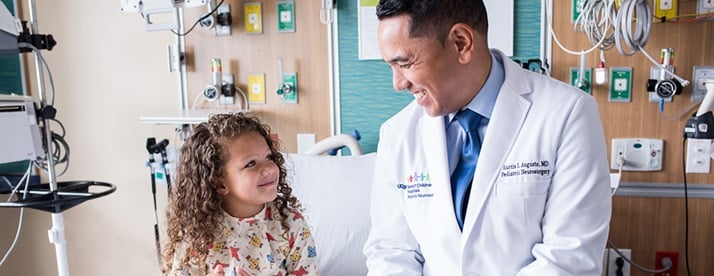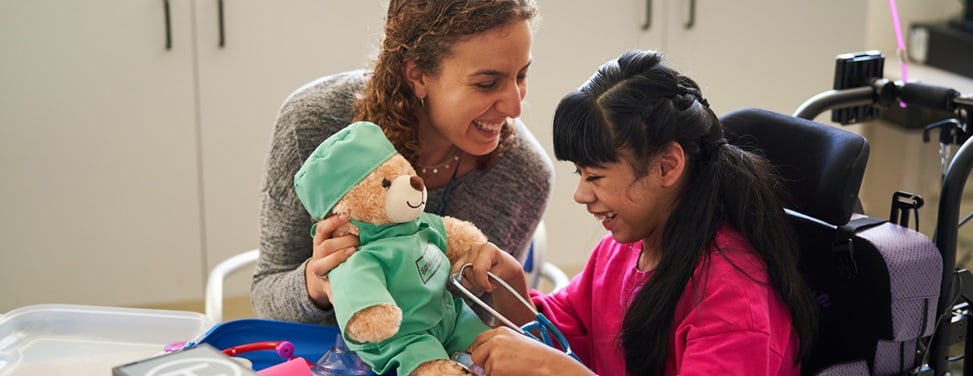
Birthmarks & Vascular Anomalies Center
Founded in 1991, UCSF's Pediatric Birthmarks and Vascular Anomalies Center was the first medical facility on the West Coast to specialize in the treatment of birthmarks and vascular anomalies. Since then, we have provided state-of-the-art, highly specialized care for all types of vascular birthmarks and anomalies, from the most common to the rare and complex.
Our team includes specialists from many different areas of medicine, including dermatology, otolaryngology, neuroradiology, orthopedics, plastic surgery and hematology-oncology. We care for patients with vascular growths, such as hemangiomas and other vascular tumors, and people with vascular malformations, including venous, lymphatic, arteriovenous and mixed malformations. We treat children with Klippel-Trenaunay syndrome as well as those diagnosed with lymphangioma, cavernous hemangioma, glomangioma, Proteus syndrome and other vascular anomalies.
During a visit, your child will see a dermatologist, plastic surgeon, interventional radiologist, dermatologic surgeon and otolaryngologist. This team will then meet to review the patient's medical history, physical exam, prior biopsies and imaging studies and decide on further recommendations for diagnosis and treatment. This process prevents the need for multiple initial doctor visits.
Our locations (1)
Our team
-

Erin Mathes
MD
Dermatology, Pediatric Dermatology -

Daniel Cooke
MD
Diagnostic Radiology, Neuroradiology -

Josephine A. Czechowicz
MD
Otolaryngology, Pediatric Otolaryngology -

Ilona J. Frieden
MD
Pediatric Dermatology -

William Y. Hoffman
MD
Plastic Surgery, Reconstructive Plastic Surgery -

Nicole W. Kittler
MD
Pediatric Dermatology -

Kazim Narsinh
MD
Interventional Neuroradiology -

Jason H. Pomerantz
MD
Plastic Surgery, Reconstructive Plastic Surgery -

Kristina W. Rosbe
MD
Otolaryngology, Pediatric Otolaryngology -

Joseph Shieh
MD, PhD
Medical Genetics -

Kristin A. Shimano
MD
Medical Oncology, Hematology -

Beth Apsel Winger
MD, PhD
Medical Oncology, Pediatric Medical Oncology -

Rosanna Wustrack
MD
Orthopedic Surgery, Sarcoma and Connective Tissue Surgical Oncology -

Melissa N. Zimel
MD
Orthopedic Surgery, Sarcoma and Connective Tissue Surgical Oncology
Awards & recognition
-

Ranked among the nation's best in 11 specialties
Plan your visit
What to Bring
- Photo I.D.
- Health insurance card
- Insurance authorization, if required
- Doctor's referral, if required
- Recent test results related to your child's condition
- List of medications, including dosages, plus any your child is allergic to
- List of questions you may have
- Device or paper for taking notes
Support services
Tender wagging care
Our therapy dogs spread joy and smiles at the bedside and throughout the hospital.
Visit Child Life services
















































